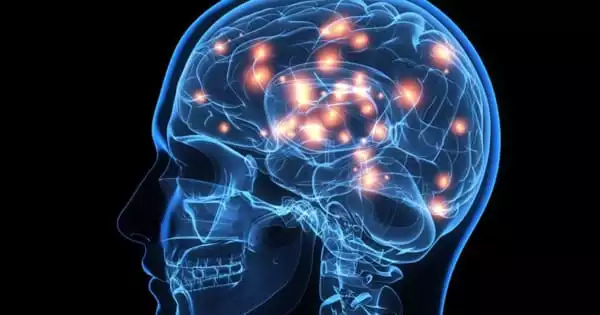When it comes to losing weight, the old cliché “it’s all in your thoughts” may be correct. Wake Forest University School of Medicine researchers discovered that two unique brain networks can greatly influence how effective a person is at losing weight.
According to the study’s principal investigator, Dr. Jonathan Burdette, professor of radiology at Wake Forest University School of Medicine, these findings, published in the April edition of the journal Obesity, may eventually aid in the development of tailored behavior-based treatments that target specific brain circuitry to aid in weight loss.
The purpose of this study was to see if the amount of weight loss after six months of a behavior-based intervention was associated to connectivity in two functional networks (FNs), FN1 and FN2, in a group of obese older individuals. Functional brain networks are parts of the brain that communicate with one another. Burdette and his team first identified FN1 and FN2 as being linked in successful weight loss in 2018.
The key appears to be a link between two hormones and how they interact with the brain. These two hormones are leptin and insulin, which are both naturally produced by our bodies but have completely different functions. Leptin is created within our fat cells and tells our brain when we are full to quit eating. After we eat and our blood sugar begins to climb, our pancreas produces insulin. Insulin’s function is to transport sugar from the bloodstream to cells throughout the body that utilise the sugar for energy. In a nutshell, these hormones influence both hunger and metabolism.
Our findings provide deeper insight into complicated functioning circuits in the brain, so we now have a mechanistic explanation of why people aren’t losing weight. In theory, if you know more about cravings and control, we will be able to adapt therapies to an individual rather than treating everyone the same.
Professor Dr. Jonathan Burdette
In this investigation, 71 patients in a randomized weight-reduction clinical trial were scanned with functional magnetic resonance imaging at the start of the trial to see if and how FN1 and FN2 were predictive of weight loss. Participants were examined while they were resting and again after completing a food-cue exercise. The data was then evaluated at the end of the six-month trial to compare the links between the baseline networks and the change in the participants’ weight.
Burdette’s team discovered that the link of brain function in FN1, which includes sensory and motor functions, was significantly related to six-month weight loss during the resting state. During the food-cue state, six-month weight loss was significantly associated with FN2, which includes self-regulation and the ability to focus attention.

The degree of success with weight loss is related to two unique brain network biases: in the resting state, there is a sensory motor motivational bias to pursue food, and when processing food signals, there is a deficit in the executive control and attention network.
“These findings show that persons who were less successful at weight loss had distinct neural network features than people who were more successful,” Burdette said. “Some persons appear to have a larger unconscious sensory motor inclination to pursue food than others. This insight can help explain why some people have such trouble losing and retaining excess weight in a food-abundant environment with food cues everywhere.”
This is the first study to link key principles identified as critical in understanding obesity and overeating to success with behavioral weight loss in older persons with obesity.
“Our findings provide deeper insight into complicated functioning circuits in the brain, so we now have a mechanistic explanation of why people aren’t losing weight,” Burdette said. “In theory, if you know more about cravings and control, we will be able to adapt therapies to an individual rather than treating everyone the same.”
Because the link between hormones and the brain has yet to be investigated in humans, this potential treatment target may take years to develop.
“We need to do a lot more research on the subject,” said Munzberg-Gruening, “but this discovery opens up a lot of opportunities for future research on the interaction between hormones in our bodies and the brain. Our work at Pennington Biomedical is all about discovering new ways to help people live better lives, and this basic research provides the building blocks that we believe will allow people to move in that direction.”













